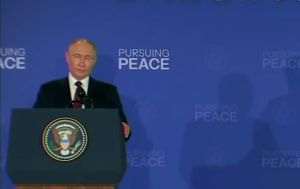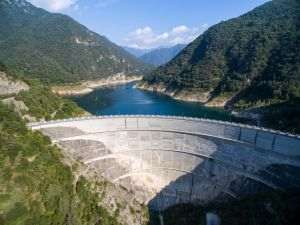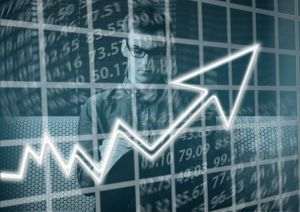German companies in our country are ready to contribute to changing the Romanian economic model in the current regional geopolitical context, to the digital transformation and to the opportunity offered by the green transition for our country to become an energy hub, but they need legislative predictability and real partnership . with the political decision-makers from Bucharest, stated, yesterday, the participants in the debate "Geopolitical changes in South-Eastern Europe: what does it mean for business?", organized by the Romanian-German Chamber of Commerce (AHK).
At the opening of the event, Mircea Geoană, deputy general secretary of NATO, said: "Romania's economic model is outdated. The original economic model based on cheap labor and the export of low-value products has reached its maximum limit. The most profound expression of what is happening now at the level of the European Union and in Romania is the strategic awakening, that is, a new beginning, because the current model has reached its limits. German Chancellor Olaf Scholz recently said that Europe's center of gravity is moving east. It is an obvious strategic reality. (...) Maybe the time has come not to think about a Romanian mittelstand (middle class), an essential tissue of our country, to even make a new-style bruderschaft (a twinning) with our partners. I admire the involvement of the German business community for dual education in our country and the moment when we did not think seriously about what our partners are doing and together with whom we can learn to move from dual education to a Romanian industrial model".
The Deputy Secretary General of NATO recalled that he contributed several years ago, from the governmental position he held, to the granting of tax facilities for the IT&C sector, a sector which at this moment has come to represent 8% of the Gross Domestic Product . , and criticized the recent measures of political decision-makers from Bucharest that canceled part of the facilities granted to this economic sector.
Mircea Geoană stated: "I agree with what Mr. Mugur Isărescu, the governor of the National Bank of Romania, said recently, that you cannot keep taxes low for an economic sector, because they turn into rent, but I would go with politics . public for supporting research-development-innovation partnerships. (...) Changing legislation during the game is against the economic interests of the country. You cannot change the Fiscal Code three times in one year. You can't do serious business when you have an unpredictable legislative and fiscal environment".
• Mircea Geoană: "Romania has lagged dramatically behind the digital transformation in the public sector"
Mr. Geoană also said that our country needs strategic investments, capital, technology transfer, management and competence transfer and that it is necessary for the authorities to support innovation, digitization and projects aimed at the green transition.
The NATO Secretary General stated: "The economic model will change, the configuration of supply chains will change, and technology will have an impact on our products. We are participating in the biggest transformation in history, and governments alone, even if they are efficient, will not be able to make the necessary changes alone, but must collaborate with the academic environment and the business environment. (...) Unfortunately, Romania lagged dramatically behind the digital transformation in the public sector. We are in the eight digitization indexes drawn up by the European Commission, except for one we are better, that is, we are not the last: internet speed. That is why I say that we must enter into a forced march to recover this gap, because it is vital for the future of Romania and for the public sector, which will be more transparent about the spending of public money, spending that is relevant for today. that no one knows exactly where public money is going".
The Deputy Secretary General of NATO mentioned that the Republic of Moldova must constitute a regional hub in Romania for the reconstruction of Ukraine and spoke about the modernization of the trans-European road, rail and river transport corridors.
Mircea Geoană stated: "The Danube Strategy was beautiful, but it did not have the necessary allocation. That is why, after the European parliamentary elections in the future European Parliament and the future European Commission, they must invest money in this subject because it has once again become a way of transporting goods for the current situation in Ukraine. Then I consider that European corridor 9 should be rehabilitated along the route Greece-Bulgaria-Romania-Ukraine (Odesa) - Republic of Moldova (Chisinau) - Slovakia - Germany".
Mr. Geoană also said that our country does not want to be a leader in the Black Sea region, but a catalyst for the partners in the region and specified that in our country, as a member of NATO, business is safe, because security is part of economic business, and this security is ensured by the adoption at the level of the Alliance of new defense and deterrence plans and by their implementation by the allied states, including Romania.
• Andreas Lier: "Romania needs an «Industrial Deal»"
Andreas Lier, the president of AHK, showed that business people face multiple challenges, with geopolitical transformations, but also with the transformations brought by the Green Deal.
The President of AHK stated: "In this context, Romania can play an important role, especially since geopolitical transformations have created a situation whereby companies from Western Europe move to the East, to Romania, where there are abundant energy resources. With these resources, Romania can attract energy-intensive companies, energy-intensive industries, but there is a need to support these investments. It is important that Romania becomes more energetically interconnected with the other states of the European Union. We also see a greater resilience of supply chains and I believe that Romania can assume regional leadership, especially since The Economist recently stated that your country can become a champion of economic growth in the region. But for this, we need an «Industrial Deal» through which the politician supports industry more, with fiscal policies and aid for companies to become competitive at global level".
Christian Platte, business attache of the German Embassy in Bucharest, stated that a huge change can be observed in the relationship between the two states, because the decision-makers in Berlin understood that they must focus on Eastern Europe and the Black Sea region.
Christian Platte stated: "We are talking about the transformation of the energy sector, about the change of global politics, and we understood that we must turn to the partners in NATO and the EU who support our policies. The relations with Romania are excellent, but I believe that we must focus on the energy sector, where there is a lot of potential for investments by German companies. Romania could become an energy hub in the region through green hydrogen projects, solar and wind energy projects and the extraction of natural gas from the Black Sea".
For his part, Volker Raffel, the CEO of E.ON Romania, said that our country has everything it needs to become an important player for the energy market. Regarding the transformation of Romania into an energy hub, Volker Raffel said: "For this, investments in infrastructure and a free market for electricity and natural gas are needed. Without it, Romania will not play this role as an energy hub. (...) Europe needs more gas, but Romania needs natural gas, biogas and hydrogen to ensure a smooth energy transition. It would be a huge mistake for companies in the field not to immediately invest in distribution networks. ANRE is currently creating the investment framework for the next five years, for investments in networks. (...) If we do not invest in networks, they will not take over the energy produced by photovoltaics and the inverters will stop, which would mean an economic waste from an investment point of view".
Daniel Barciuc, the CEO of Siemens Romania, showed that the company he leads is not looking for cheap, but qualified labor, because there are no longer low wages in society. He mentioned that within the company 800 employees work on innovation, 20 are dedicated to the cybersecurity sector so that Siemens products have strong protection systems, and that the company has 5 factories in Romania and recently acquired two companies: one from Oradea and one from Moldova.
Moreover, the branch in our country of the German concern has a program through which the entrepreneurs they work with are educated on the use of new applications, on innovation, but also how to learn the rules of the game. At the same time, the company's technicians help its partners and end customers to understand the digital transformations implemented by the respective company.






























































